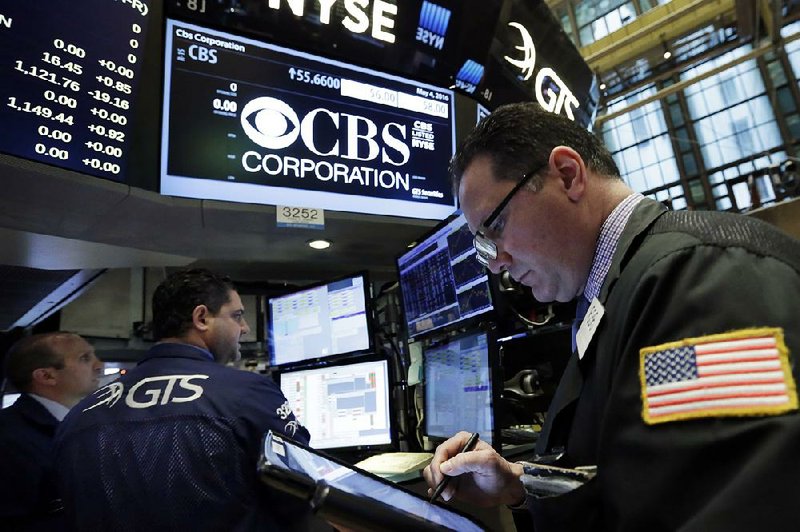NEW YORK -- U.S. and global stock indexes moved lower a second day Wednesday after a dismal report on job creation that gave investors concern over the state of the economy. The data followed a round of economic news out of China and Europe a day earlier that also suggested sluggish growth.
The Dow Jones industrial average fell 99.65 points, or 0.6 percent, to 17,651.26. The Standard & Poor's 500 index dropped 12.25 points, or 0.6 percent, to 2,051.12 and the Nasdaq composite fell 37.58 points, or 0.8 percent, to 4,725.64.
Stocks started lower and remained there throughout the day, after a survey by payroll processor ADP that showed U.S. companies last month hired workers at the slowest pace in three years.
ADP said private companies hired 156,000 workers in April, down from 194,000 in March. The figure was significantly worse than expected.
Other economic indicators out of Europe were disappointing Wednesday. Retail sales fell 0.5 percent during March from the previous month. Investors had expected a more modest decline of 0.1 percent.
Financial-information company Markit said its purchasing managers' index for the region, a gauge of business activity, slipped to 53 in April from 53.1 the previous month. Though still above the 50 threshold indicating expansion, the reading has fallen from the start of the year.
While stocks are well off the lows they hit in February, investors remain reluctant to make heavy bets back into the stock market. The S&P 500 has bounced off the 2,100-point mark several times in the past six months, most recently as last week. That means investors feel stocks are too expensive to make big bets, and are waiting to see more positive data or earnings, traders said.
"We've run out of gas here. ... We are going to need some sort of catalyst to move this market higher, but I don't know what that catalyst might be. Earnings have been OK, but not strong enough to say it's time to buy," said Rob Bernstone, a managing director in equity trading at Credit Suisse.
Among individual companies, Intercontinental Exchange, the parent company of the New York Stock Exchange, jumped $17.51, or 7 percent, to $258.49 after the company announced it would not bid for the London Stock Exchange.
Travel company Priceline sank $101.60, or 7.5 percent, to $1,253.04 after the company warned that profits would slow in the second quarter.
Benchmark U.S. crude rose 13 cents to close at $43.78 per barrel on the New York Mercantile Exchange. Brent crude, used to price international oils, fell 35 cents to close at $44.62 a barrel in London. In other energy trading in New York, wholesale gasoline fell 2 cents to $1.49 a barrel, heating oil fell half a cent to $1.33 a gallon and natural gas rose 6 cents to $2.14 per 1,000 cubic feet.
U.S. bond prices rose. The yield on the 10-year U.S. Treasury note edged down to 1.77 percent from 1.80 percent. The dollar rose to 106.93 yen from 106.41 yen late Tuesday. The euro fell to $1.1498 from $1.1505.
Gold fell $17.40 to $1,274.40 an ounce, silver fell 20 cents to $17.28 an ounce and copper fell 3 cents to $2.18 a pound.
Business on 05/05/2016
